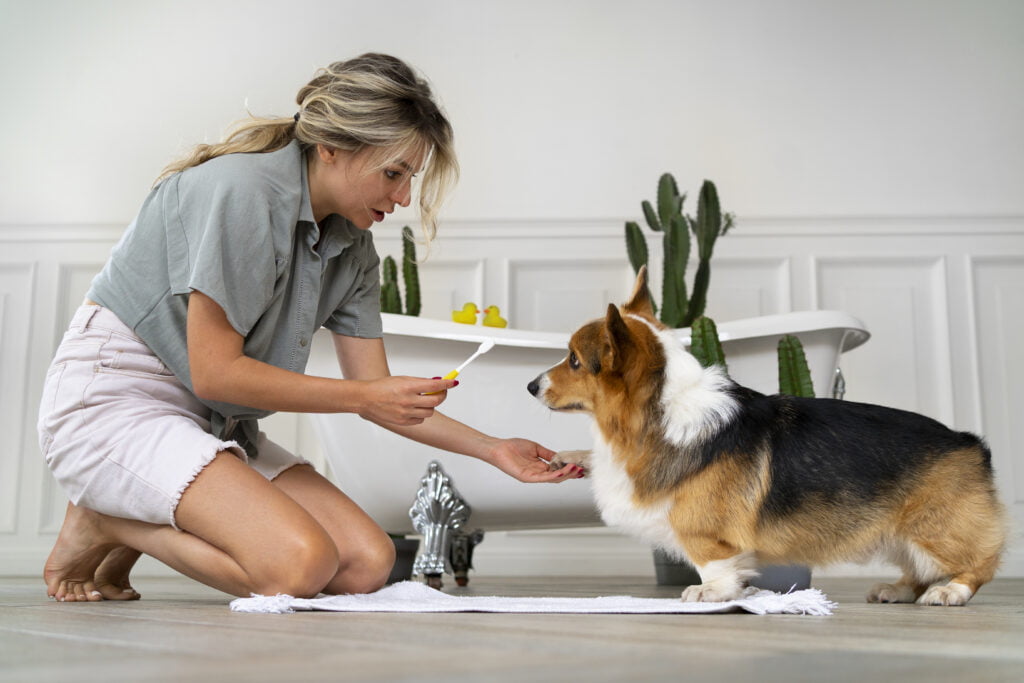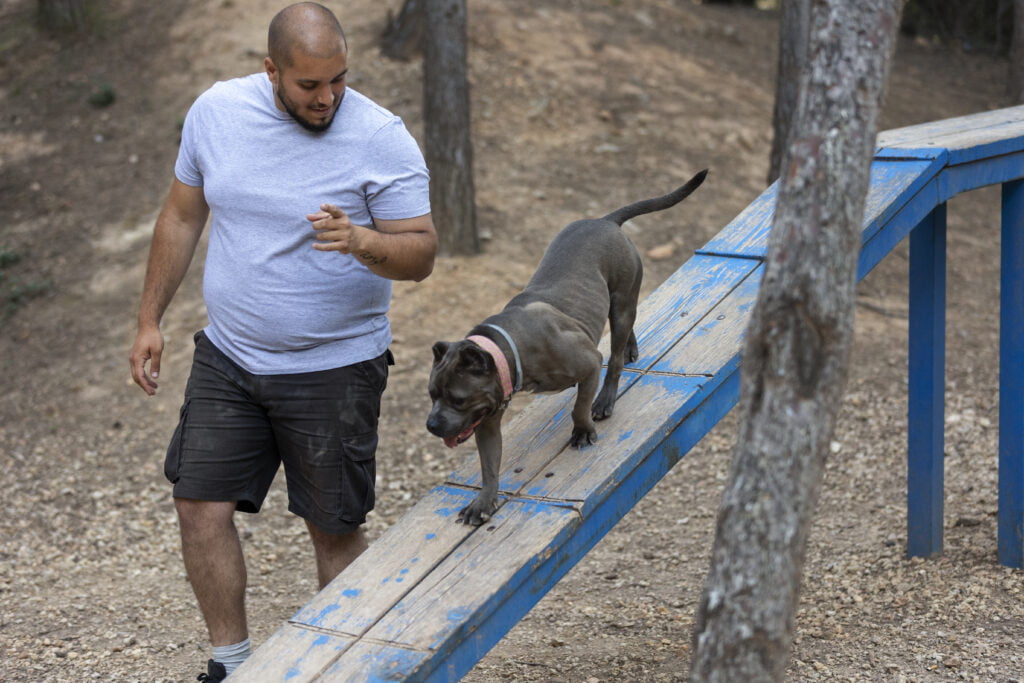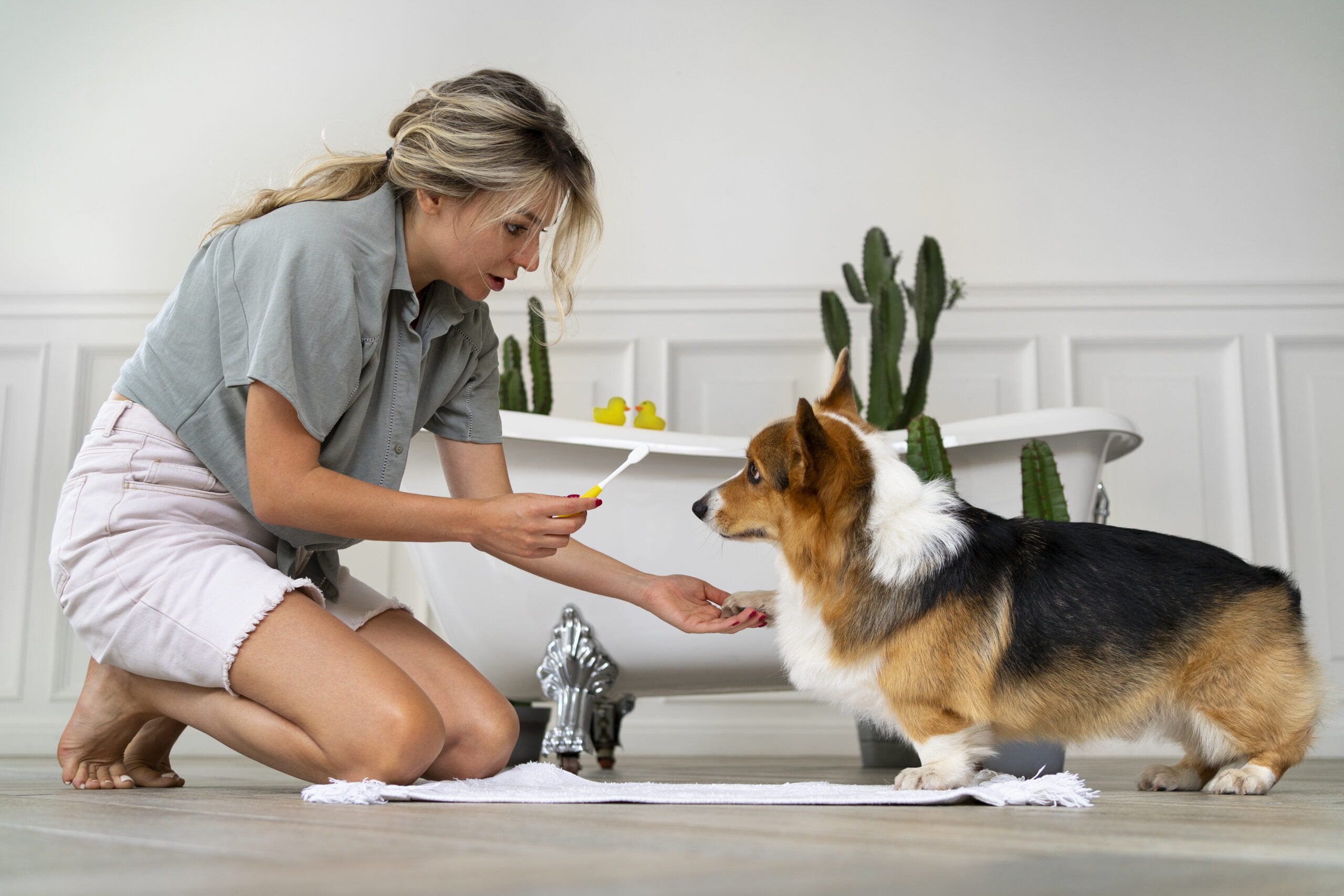You want your dog to be healthy and content as a pet owner. If your dog is underweight, what then? There are a few things you can do to assist your dog if they are having trouble putting on weight gain. In this thorough tutorial, learn how to help your dog gain weight in a healthy manner. Discover practical methods, dietary advice, and workout suggestions to aid in your pet’s development of a balanced physique. Become a more capable pet owner and look out for the welfare of your animal companion.

Introduction:
Maintaining a healthy weight is crucial for the general well-being of our cherished pet friends. This thorough guide offers light on an equally essential subject: healthy weight gain for dogs, whereas many articles concentrate on weight loss for dogs. This beginner’s guide will go through the techniques for assisting your dog’s development of a balanced physique. We’ll go through all you need to know to ensure your pet’s optimum health, from comprehending the factors that cause weight loss to putting practical measures into practice.
- The Benefits of a Healthful Diet
- How to Increase the Calorie Intake in Your Dog
- The Advantages of Workout
- How to Track the Weight Gain of Your Dog
- Advice on How to Make Your Dog Gain Weight
The Benefits of a Healthful Diet
Making sure your dog is eating a good diet is the first step in helping them acquire weight. An underweight dog should eat a diet heavy in calories and protein. To guarantee that your dog is receiving all the vitamins and minerals they require, it should also be nutrient-rich.
There are several methods you can use to boost the number of calories in your dog’s food. You can offer them higher-calorie dog food, supplement it with good fats, or give them smaller meals more frequently.
How to Increase the Calorie Intake in Your Dog
You might need to give your dog more calories if they are underweight. This can be achieved by giving them more frequent meals, providing them with higher-calorie dog food, or incorporating healthy fats into their diet.
The following advice will help your dog consume more calories:
- Pick a dog food that is made with weight increase in mind. Compared to ordinary dog food, these foods often have more protein and calorie content.
- Give your dog food that has good fats. Avocados, olive oil, and nuts are examples of healthy fats that can aid in your dog’s weight increase.
- Give your dog meals more frequently. They will be able to eat more calories all day long thanks to this.
The Advantages of Workout
Exercise is vital for your dog’s health, but it can also aid in weight growth. Exercise promotes muscle growth, which can improve your dog’s appearance and well-being.
If your dog is underweight, it’s crucial to begin exercising gradually. They may lose weight even though they overexert themselves. As they gain weight, they should begin with short walks and gradually increase the length and intensity of their exercise.
People Also Read:- The Beginner’s Guide to Weight Gain Supplements: Boost Your Journey to a Healthy Weight

How to Track the Weight Gain of Your Dog
Weighing your dog on a regular basis is the greatest approach to keeping track of their weight gain. With a pet scale at home or at the clinic, you may perform this task.
It’s critical to monitor the weight gain of your dog over time. You may check if they are gaining weight at a healthy rate with the aid of this. You might need to change your dog’s diet or exercise regimen if they aren’t gaining weight.
Advice on How to Make Your Dog Gain Weight
Here are some more suggestions for assisting your dog’s weight gain:
- Be tolerant. Dogs don’t gain weight quickly. If you don’t notice results right away, don’t give up
- Be dependable. Consistency in feeding and exercise is crucial to assisting your dog in gaining weight.
- Consult with your vet. Speak to your veterinarian if you are worried about your dog’s weight. They can assist you in creating a strategy to safely and successfully increase your dog’s weight.
Conclusion
Although it can be difficult, you can help your dog gain weight if you take the proper approach. You may assist your dog in achieving a healthy weight and leading a long and fulfilling life by using the advice in this book.
FOQ:-
How much should my dog gain in weight?
Depending on their breed, age, and degree of activity, dogs should gain weight. Aim for a 1-2% weekly weight gain as a general guideline.
How can I assist my dog gain weight in the greatest way possible?
you can do a few things to assist your dog in gaining weight, such as:
Feed them a lot of calories.
Give them meals more frequently.
Add wholesome fats to their meals.
Add a weight gainer to their diet to supplement it.
What are some wholesome foods that will help my dog eat more?
The following healthy foods can aid in your dog’s weight gain:
Almond butter
Pumpkin
The sweet potato
Eggs
Cheese cottage
Yogurt
What dietary supplements can help my dog eat more?
A few nutrients, such as the following, can aid in your dog’s weight gain:
Multivitamins with fish oil
gainers of weight
What are a few ailments that can make dogs lose weight?
The following are a few ailments that might make dogs lose weight:
Cancer
Diabetes
liver illness
kidney illness
Hypothyroidism
Cushing’s syndrome
What are the signs of being overweight or underweight in my dog?
Take your dog to the vet for a body condition score to determine whether they are overweight or underweight.
What are some symptoms of my dog not eating enough?
The following are some indications that your dog is not eating enough:
shedding pounds
being sluggish
an uninteresting coat
increased appetite
heightened thirst
What advice would you give someone who is a fussy eater?
The following advice can help you feed a finicky eater:
Eat food from various brands and flavors.
Add broth or water to their meal.
Give them valuable treats.
Feed them in a calm setting.
Make eating enjoyable.
What should I steer clear of when trying to assist my dog put on weight?
When attempting to assist your dog in gaining weight, avoid the following:
excessive eating.
supplying them with table scraps.
giving them bad food to eat.
their diet with harmful supplements
When should I visit a veterinarian regarding my dog’s weight?
You should consult a veterinarian if you have concerns about your dog’s weight. They can suggest a safe and healthy weight gain strategy and assist you in determining whether your dog is overweight or underweight.

1 thought on “Understanding the Key to Healthy Weight Gain for Dogs: A Pet Owner’s Guide”